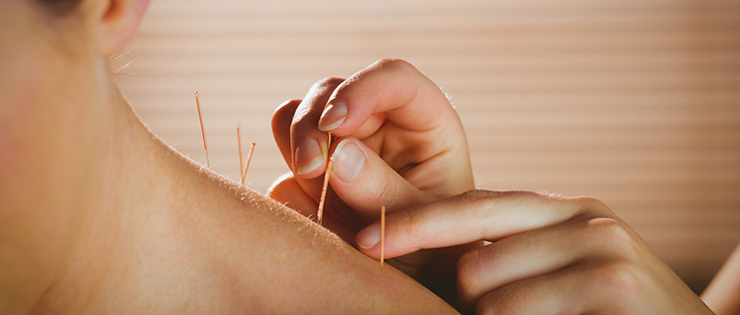
What is Acupuncture?
While classed as “new age” there’s nothing new about acupuncture. It comes under complementary medicine, a billion dollar a year industry in Australia with more than 60 percent of Aussies having tried some form of alternative therapies.
It’s thought to have begun in China in about 100BC. The idea behind it is based on the chi or (qi) which is the Chinese term for the life force or energy force that flows through our bodies.
The belief is that, the chi (qi) flowing through our bodies, can occasionally get blocked or, be out of balance. So thin needles are placed through the skin at specific locations to improve the flow of chi, to restore its balance and relieve symptoms.
These are long held Eastern beliefs that are making their way into every day Western world. While I am extremely culturally sensitive, as a practicing physician, I made the decision very early in my career to only recommend treatments that have evidence based outcomes, that weren’t based on what your best friend or your next door neighbour had encountered, that aren’t anecdotal, but what medical science had PROVEN works.
There have been more than 3000 studies of acupuncture around the world. And due to the nature of acupuncture, testing in a traditional medical way is difficult.
Unlike drug trials where some participants are given nothing, some are given the ACTUAL drug and some are given a fake drug (a placebo) it is difficult to give a placebo when you are talking about putting needles into people.
So most of the studies compare no treatment to acupuncture. This isn’t reliable because there is no way of analysing the “placebo” effect.
With that in mind, here is what we know.
There is absolutely no medical evidence that there is chi moving through the body and unblocking that chi works.
However, there could be some medical reasons why patients do feel better in some cases, after having acupuncture. There is a theory that, while not quantifiable, the needles might release endorphins (natural pain killing chemicals) that can relax tense muscles and help temporarily reduce pain. A collaboration of scientists from Oxford have concluded acupuncture might be effective for some back pain, pelvic pain during pregnancy, headaches and neck disorders, due to the release of those temporary “natural” pain killers. But the argument that acupuncture is reliable for pain management, is weak. It might work for some, it might not work for others, and there’s no medical evidence for me to recommend it for those conditions.
If there is little evidence for “muscle based” symptoms then evidence is non - existent for more complex ailments.
There is no medical evidence acupuncture can treat depression, IBS, help you quit smoking, help arthritis, epilepsy, insomnia, or infertility to name a few.
Despite the lack of evidence, I am realistic enough to know many patients will still want to try it.
So - with that in mind here is my advice.
Find a registered member
There are very strict regulations around Acupuncture and Chinese Medicine in Australia. Chinese medicine has been a nationally registered health profession for 5 years and comes under the same standards and regulations that other mainstream doctors are covered by (AHPRA).
Anyone wishing to advertise Chinese medicine services must be registered with the Chinese Medicine Board of Australia. Their website allows you to check whether the provider you plan on visiting is in fact registered.
Don’t substitute medicines
Chinese medicine (and other alternative disciplines) are often referred to as complementary – they are meant to work in conjunction with evidence based Western styles. Don’t stop taking any prescriptions your doctor has given you or delay surgery if it has been recommended just because you start Chinese medicine. Let the two work side by side.
Tell your GP
Only a third of people who have sought out alternative therapies tell their GP. We need to know. We are not going to judge you if you tell us you want to try something else, but we need to know what else you are doing with your body, especially if the alternative medicine you are suggesting is herbal or might interfere with what we have prescribed for you to manage your condition.